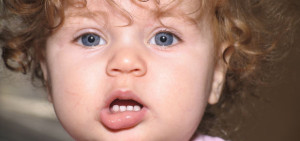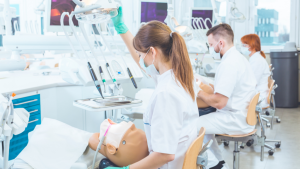The Importance of Caring For Your Baby’s Teeth
By mendy rYou’d certainly be forgiven for not knowing the exacts when it comes to caring for your baby’s teeth, especially when there are so many differing opinions about milk teeth out there. Here are some helpful tips you’ll want to use when preparing to look after your baby’s teeth… When to Start Brushing Caring for your baby’s teeth Keep an eye on your baby’s mouth because you should be ready to start brushing as soon as you see the very first tooth bud emerging. When this happens, you’ll want to be cleaning their teeth twice a day. It’s better to start as early as possible as this means your baby can get used to having their teeth cleaned from a young age, but don’t panic

By mendy r
You’d certainly be forgiven for not knowing the exacts when it comes to caring for your baby’s teeth, especially when there are so many differing opinions about milk teeth out there. Here are some helpful tips you’ll want to use when preparing to look after your baby’s teeth…
When to Start Brushing
Keep an eye on your baby’s mouth because you should be ready to start brushing as soon as you see the very first tooth bud emerging. When this happens, you’ll want to be cleaning their teeth twice a day. It’s better to start as early as possible as this means your baby can get used to having their teeth cleaned from a young age, but don’t panic if the tooth bud is taking a little longer to appear.
The first tooth usually appears at around 6 to 8 months, with the first tooth usually being the bottom front tooth. Don’t be too concerned if you baby’s firs tooth doesn’t appear before or after this time frame, as the time it takes for a first tooth can vary greatly. There are some babies that have their first tooth after a couple of weeks of pregnancy, which is why it’s really important to keep an eye out for any emerging tooth buds.
Once your baby reaches two-and-a-half years, they should have around 20 milk teeth. This will happen eventually and when it does, you need to be fully prepared to introduce a teeth cleaning schedule that they can get used to. After all, you should be cleaning your child’s teeth yourself until they are about seven and accompanying them for a few years more until they can do it properly themselves.
Buying a Toothbrush for Babies
In truth, you don’t really need a toothbrush at first when cleaning your baby’s teeth. You are actually better off using a small piece of muslin. Wrap the muslin around your finger and apply a small amount of toothpaste, before rubbing it onto your baby’s teeth.
There are toothbrushes available that are designed for cleaning baby teeth which you might have come across already. If you’d prefer to sue one of these, make sure you choose one that has a reasonably small head and very soft bristles so as not to cause any discomfort. Check the packaging to make sure the toothbrush is designed for cleaning baby teeth.
It’s essential that you change your baby’s toothbrush regularly in the same way you’d change your own. Every two to three months is usually the recommended time frame for a baby’s toothbrush. You can tell if a toothbrush needs replacing if the bristles start to spread out.
The Recommended Toothpaste and How Much You Should Use
Fluoride is essential in fighting tooth decay, so any toothpaste you do purchase should contain fluoride. The toothpaste you choose should also be made for babies, so make sure you check the packaging first. Children younger than three should use toothpaste that has less fluoride than usual and should only start sharing your toothpaste with you when they reach this age.
You won’t need to use anymore than a smidge of toothpaste to start, with a thin film covering just over half of the bristles enough to get started. When you’ve come to the end of the brush, encourage your baby to spit in the sink and not swallow the toothpaste. It may take time for your baby to get used to this, as the general idea is to introduce healthy teeth cleaning habits at an early stage.
Toothpaste can have quite an appealing taste to some baby’s, so it’s important you choose one that doesn’t have a fruity flavor and that encourages them to potentially eat it. It’s important that your child learns about toothpaste and that it isn’t food. Teeth can actually be damaged if large amounts of fluoride are swallowed, while swallowing toothpaste can also cause unwanted side effects such as diarrhea in babies.
Introducing Regular Dental Check-Ups
The best way to introduce the dentist to your baby is to take them along with you to your next appointment and let them meet your dentist. Your baby can easily pick up the sights and smells of the dental surgery and become accustomed to them over time, making future trips far less stressful for them.
Many people find dental surgeries intimidating, so if you’re quite anxious about visiting the dentist yourself, book a separate appointment for your baby so that you can remain fully focused on how they are feeling when their appointment comes around.
The best time to start taking your baby to the dentist is when you notice the first milk tooth, or the first tooth bud emerging. Remember that NHS dental treatment is free if you are under 18 and you can register your child soon after they are born.
What Your Baby Should Avoid to Maintain Healthy Milk Teeth
- Squash or fizzy drinks shouldn’t be encouraged, offer only breast milk, formula milk or water as drinks at an early age
- Sweets and sugary snacks should also be avoided, with a healthy, balanced diet encouraged that includes fruit and vegetables
- Avoid baby foods with lots of sugar in them and check labels whenever you buy something new
- Avoid medicines that contain lots of sugar and speak to your doctor about sugar-free medication
Mike James
Content Editor
The post The Importance of Caring For Your Baby’s Teeth appeared first on Worldental.Org.
SOURCE: Worldental.Org – Read entire story here.









